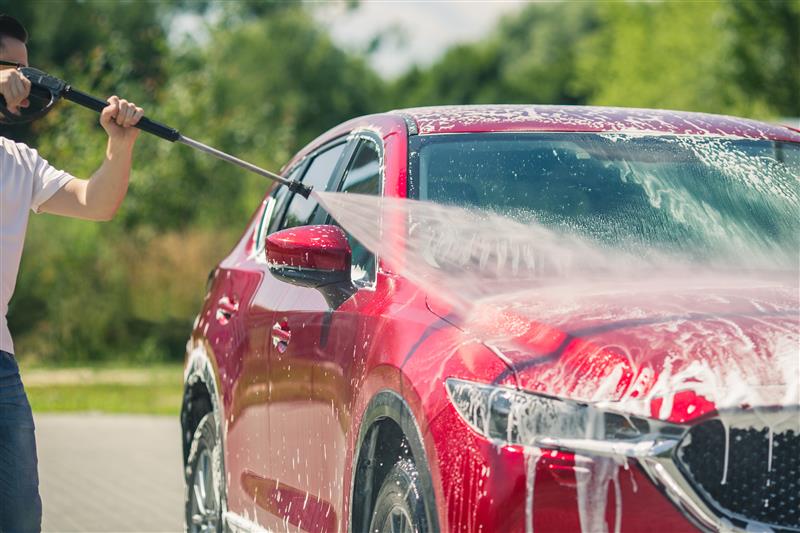What Temperature Is Too Cold For Car Wash

Determining the ideal temperature for car washing isn't just a matter of comfort; it's a critical factor impacting both the vehicle's finish and the equipment used in the process. For automotive professionals, understanding the technical specifications, engineering choices, and real-world performance limitations related to low-temperature car washing is crucial for maintaining optimal service and minimizing potential damage.
The Danger Zone: Understanding Temperature Thresholds
While there isn't a single, universally agreed-upon "too cold" temperature, the general consensus within the automotive and car wash industries places the critical threshold around 32°F (0°C). Below this point, several issues arise:
- Freezing of Water Lines and Equipment: This is the most obvious concern. Water expands when it freezes, potentially bursting pipes, pumps, and nozzles within the car wash system. This leads to downtime, costly repairs, and frustrated customers.
- Chemical Ineffectiveness: Many car wash detergents and cleaning solutions are less effective at lower temperatures. The chemical reactions necessary for dissolving dirt, grime, and road salt slow down significantly. This requires higher concentrations of chemicals, potentially damaging the vehicle's paint or clear coat.
- Increased Risk of Scratches: Cold temperatures can make dirt particles harder and more abrasive. In touchless systems, relying solely on high-pressure water to remove these hardened particles can increase the risk of paint damage. In brush-based systems, the brushes themselves can become stiff and less pliable, leading to micro-scratches or swirls.
- Icing on Vehicle Surfaces: Water left on the vehicle surface can quickly freeze in sub-freezing temperatures, especially on moving parts like door handles, locks, and windshield wipers. This can lead to mechanical failures and customer dissatisfaction.
Engineering Considerations and Mitigation Strategies
Car wash manufacturers and operators employ various engineering solutions to mitigate the risks associated with cold-weather operation:
- Heated Water Systems: Industrial-grade water heaters maintain water temperatures above freezing, improving detergent effectiveness and preventing freezing within the system. These systems typically utilize natural gas, propane, or electricity as their energy source. The engineering choice of heater type often depends on cost, availability, and environmental considerations.
- Insulated Plumbing and Enclosures: Insulating water lines and equipment bays helps to prevent heat loss and minimize the risk of freezing. Closed-cell foam insulation is a common choice due to its water resistance and thermal properties.
- Anti-Freeze Systems: Some car washes utilize anti-freeze solutions in non-essential lines or as a preventative measure during downtime. These solutions must be carefully selected to be compatible with the car wash equipment and environmentally safe.
- Blowers and Drying Systems: Powerful air blowers are crucial for removing excess water from vehicle surfaces, minimizing the chance of icing. The effectiveness of these blowers is directly related to their CFM (cubic feet per minute) rating and the temperature of the air they produce.
- Recirculation and Purge Systems: Recirculating water within the system helps maintain a consistent temperature. Purging lines after each wash cycle removes standing water that could freeze.
Alternatives to Traditional Car Washing in Cold Weather
When temperatures dip below freezing, alternative cleaning methods may be preferable to traditional car washes:
- Self-Service Car Washes (Bay Washes): These allow users to control the water temperature and washing process. While effective, they require more user effort and are still susceptible to freezing issues if not properly maintained.
- Detailing Services: Interior detailing services can be offered as an alternative when exterior washing is not feasible.
- Rinseless Washing: Using specialized rinseless wash products and microfiber towels allows for cleaning without the need for a full rinse, minimizing water exposure and the risk of freezing.
Pros and Cons Comparison:
| Method | Pros | Cons |
|---|---|---|
| Traditional Car Wash (Heated) | Efficient, automated, thorough cleaning. | High energy consumption, potential for equipment failure due to cold, risk of vehicle damage. |
| Self-Service Car Wash | User control, more affordable. | Requires user effort, potential for freezing issues. |
| Detailing Services | Focus on interior cleaning, provides an alternative when exterior washing is not optimal. | Does not address exterior cleaning needs. |
| Rinseless Washing | Minimizes water usage, reduces risk of freezing. | Requires specialized products and techniques, may not be suitable for heavily soiled vehicles. |
Reliability, Maintenance, and Future Trends
Maintaining a reliable car wash system in cold weather requires meticulous attention to detail. This includes regular inspection of heating systems, insulation, and plumbing for leaks or damage. Implementing a proactive maintenance schedule that includes winterization procedures, such as draining and insulating exposed pipes, is essential.
Future trends in car wash technology are focusing on:
- Smart Systems: Integrating sensors and automation to monitor temperature, water flow, and chemical usage. These systems can automatically adjust parameters based on weather conditions, optimizing performance and minimizing the risk of freezing.
- Water Recycling and Conservation: Developing more efficient water recycling systems to reduce water consumption and the associated energy costs of heating large volumes of water.
- Advanced Chemical Formulations: Creating detergents and cleaning solutions that are more effective at lower temperatures and environmentally friendly.
A Forward-Looking Note
The automotive industry is constantly evolving, with a growing emphasis on sustainability and customer experience. Car wash operators must adapt to changing environmental regulations and customer expectations by investing in energy-efficient equipment, implementing water conservation strategies, and providing high-quality service, even in challenging weather conditions. By understanding the technical complexities of cold-weather car washing and embracing innovative solutions, automotive professionals can ensure the longevity and success of their businesses in a competitive market.
